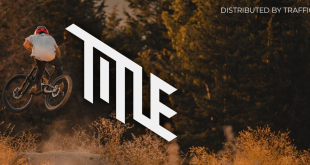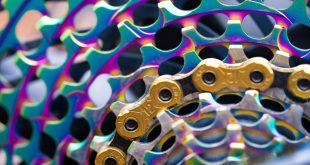With margins continually being squeezed at all levels of the chain, it wasn’t surprising to hit the stumbling blocks early when investigating how many cycle businesses have fair trade links.
In an article that was originally destined for the print magazine, we’ve quizzed two trade businesses that are doing their best to source ethically and asked what efforts and sacrifices are involved in going fair trade:
Jamie Lloyd, VeleCo
"When I graduated in 2000 I wanted to run a business that didn’t rely on exploiting other people. I was inspired by the success of Fairtrade in the food sector, but realised there were almost no manufactured Fairtrade products. I started manufacturing Fairtrade footballs as there was enormous human exploitation in the manufacture here, before moving on to footwear as this was a natural progression from footballs. I noticed that there was no Fair Trade cycle wear at all, so thought it was time this was addressed
We not only offer double the minimum wage in Pakistan and India where we manufacture, but also offer a Fair trade premium on every garment we make. This extra premium goes into a fund, which in Pakistan pays for free healthcare for all workers and their families. This provides the kind of health care security, which we take for granted in the UK. Premiums also pay for micro credit loans which allow workers to take out small, interest free loans to set up their own small business’s.
I think it’s simply the effect that going Fair Trade has on a business’s bottom line that’s prevented many from exploring what they could do to source Fair trade raw material."
Simon Nash, Green Oil
"We actually launched the world’s first fairly traded bike product, the EcoSponge a couple of years ago. This helps farmers in the Philipines get out of the spiral of poverty, and it’s made from local plants. Our new version of the Ecosponge being phased in now actually is made from plant based fibre and recycled rice sacks. It’s part of the Eco Rider Deluxe set, a great product to keep in stock for birthdays and new bike owners."
Donna Simpson, press officer at Fair trade UK
Fairtrade began its life with coffee and chocolate, yet has now grown to include everything from Fairtrade gold to cotton wool.
If you’re in the cycling industry, why not stock ethical Fairtrade cyclewear, footwear and other products? If you sell food-on-the-go for cyclists, there’s no reason it can’t be Fairtrade, like Traidcraft GEO bars, or Organic cereal bars from Tropical Wholefoods. Bananas, nuts and juices are all great for cyclists and can all be bought Fairtrade. Finally, if you sell towels or bags for bikes, these can also be bought with our certification for being ethically sourced.
Creating Fairtrade links is easier than you think, and is good for business. As a licensee, stockist, trader or even by having Fairtrade coffee in your store for customers, your business can make an impact.
The UK public is increasingly demanding transparency in the products they are buying, and as such are purchasing more ethically than ever before (Fairtrade sales in 2012 reached 1.5 billion – a 19 per cent increase on the previous year). 77 per cent of the UK public recognise the Fairtrade Mark. For any business to support that will show they are taking into account what consumers are looking for.
To quote the Kenyan proverb- “If you think you are too small to make a difference; then you have never been in a tent with a mosquito”.
You can learn more about getting involved at Fairtrade.org.uk/business
Does your business carry the Fair Trade badge? Get in touch to add your thoughts via mark.sutton@intentmedia.co.uk
 BikeBiz Bicycle and cycling retail news
BikeBiz Bicycle and cycling retail news



